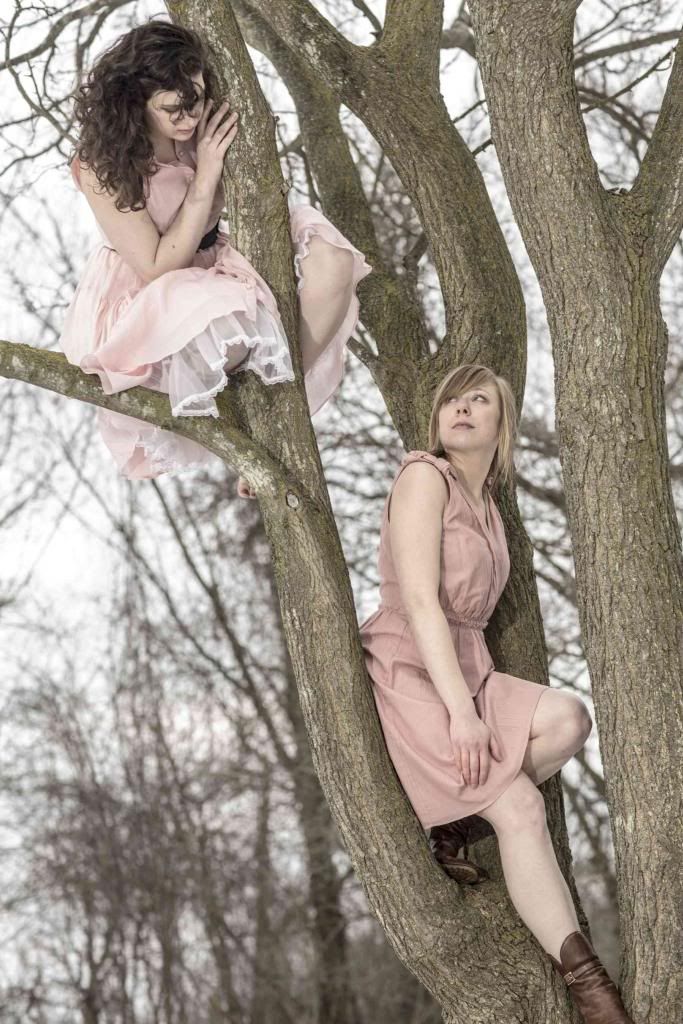On Friday night, the Helmut Stern Auditorium of UMMA was a small and cozy literary haven away from the museum’s After Hours event beginning upstairs. Though I attended alone, several Zell MFA friend groups and writer-enthusiasts (and probably writers themselves) around me gathered and giggled while we all waited for fiction writer Nell David* and poet Franny Choi to take the stage. The atmosphere was excited and comfortable.
In the tenth installment of its kind, two current MFA students emceed this year’s Webster Reading series. David was the first to read, and one of the emcees read her introduction: at an AWP conference in Washington, DC, the two strolled from table to table finding magazines in which David’s work was published. In each, her last name was different – a detail that interested me from the get-go of the evening. “At age 25, she was writing better fiction than people five years out of their MFA programs and didn’t give a damn about the name she put on it,” the emcee joked.
David, or [redacted] as they had also earlier joked, took the stage with the first few pages of a short story called “Joyce is Better Now.” The story was about a single mother whose son had just moved out for his first year of college, and how she fell in love with a doctor she had been seeing. While I’ve been paying more attention to poetry than fiction these days, I was still struck by her characters and how she moved through the piece. Characters, notably Joyce herself, were relatable yet given realistic and unique voices. I was reminded of life itself as they focused on small desires in a big world: two themes I noticed were those desires of finding honesty in already friendly relationships and being candid yet kind. Her reading style was confident and reserved, and I appreciated that she laughed at a funny line of her own. The excerpt she read gave us just enough information that we didn’t get the entire story, but wanted to know what happened next and how Joyce’s endeavors turned out.
Next was Choi, introduced by a different student (I think – or peer). He introduced her personality as a poet and commended her talents: “Saying that you’re a famous poet is like saying you’re a famous mushroom. Franny is the morel of poets.”
I’ve seen videos of Choi doing slam poetry a few years before, but this was a new experience. Slam poetry usually consists of some storytelling with sounds written to be heard on stage alongside movement, and I could sense those sounds echoing in her work within wordplay and patterns that I wouldn’t have expected. Sound aside, the images evoked were abundant and worked into one another while working together and alongside one another – stunning. She spoke with her hands and read so confidently, too, which also made me think of spoken word and slam poetry trends. Again, I was struck by the writing, especially as a poet myself.
Her first work that she read was from a collection about conducting a Turing Test on herself to see whether she’s actually a robot, though she read different poems thereafter (including one I’ve seen recently, “On the Night of the Election”). Before reading “You’re So Paranoid,” she noted that she’d never read it aloud before, and took a short pause before starting. That small moment was so beautiful, and I wondered whether she was considering the best way to read it, or whether she was capturing the moment for herself and the poem. Another intriguing piece she read was partially in response to the conversation about allowing neo-nazis speak on campus and a video wherein Richard Spencer used an image of her face, “The Cyborg Watches a Video of a Neo-Nazi Saying Her Name.” I liked how she bookended her reading, ending with a piece called (and reading the title in a voice that reminded me of an AI voice) “So, How Do You Like Working with Humans?”
Something that I appreciated about her reading lineup was that she interspersed poems about the aforementioned collection with others unrelated to it, but still managed to flow from one to the next cohesively. It was well-rounded and full of incredible work.
There was lots of writer’s confidence in the auditorium that evening, which extended to me, and for which I was grateful. I encourage y’all to read and support these talented writers as well as those who share the community here in Ann Arbor and beyond – or at least attend an MFA reading at some point.
*I wanted to include links to Nell David’s work in this review, but had some trouble finding her online and would appreciate any located links in the comments!














